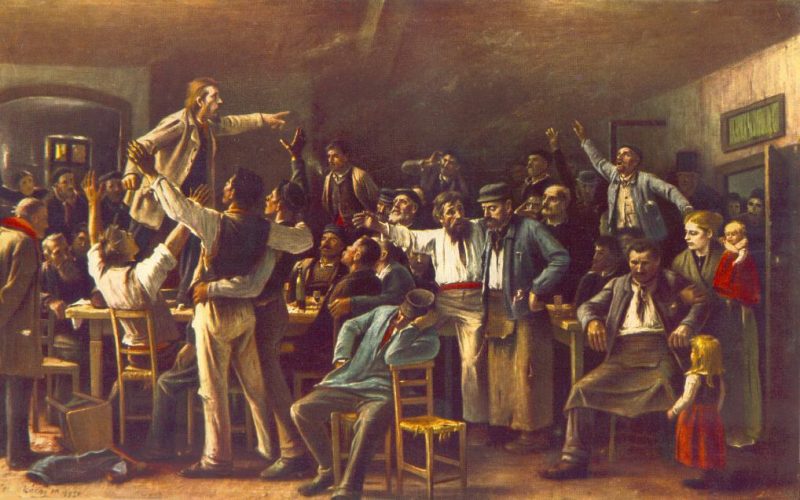05.01.2024, Berlin.
A series of mass strikes against the policies of the Olaf Scholz-led government is scheduled for January 8.
Farmers, truck drivers, as well as engine drivers intend to participate in the protest actions. They plan to be joined by workers in catering and other industries.
A significant deterioration of economic indicators and tax increases caused the discontent of Germans. Over the year, VAT on gas, district heating, school and kindergarten meals, and VAT for restaurants rose from 7% to 19%.
Germany has also introduced a plastic tax and increased additional health insurance premiums. Depending on the region, water and wastewater costs and electricity prices have increased.
From 2024, the “law on heating” will come into force, threatening Germans with additional spending and other new taxes and fees. The situation in the country is aggravated by the fact that the government has not yet adopted a budget for 2024.
Dirk Engelhardt, a representative of the Association of Freight Carriers and Logisticians, told the Bild newspaper that “farmers and transport workers are the lifeblood of Germany. If they are gone, there will be no supply.”
He emphasized that due to the increase in rates, prices for transport companies’ services could rise by 12%, which would cause a drop in their demand, which is already at a rather low level.
Joachim Rukwied, president of the Association of German Farmers, promised the authorities a “hot January.” “We will be present everywhere, the country has never witnessed something like that before,” he declared. Apparently, farmers are planning actions to block roads in the capitals of the federal states.
The head of the engine drivers’ union (GDL) said his organization plans to launch long strikes for three to five days from January 8.
The consequences of the strike could be most serious, up to and including the government’s resignation. “Judging by the degree of discontent among Germans, Scholz’s resignation is very probable,” said former Bundestag deputy and political scientist Waldemar Herdt.
He noted that the country’s government should have resigned long ago. “It should have managed to make such a mess in two years,” the politician emphasized.
Herdt emphasized that Germans stop believing in the Chancellor’s version that Russia is to blame for the country’s problems.
In 2023, Germany saw many strikes. The largest of them was a nationwide strike of transport workers, which took place in March 2023. About 400 thousand workers attended it.
As a result, railroad service throughout the country was stopped, including suburban trains. At the same time 55% of the country’s population considered the strike justified. On December 8, a strike of machinists took place in the country, which also paralyzed the railroad traffic.
At the end of 2023, farmers held several large protests. They demanded the government not to suspend subsidies.
Source: Rossa Primavera News Agency




